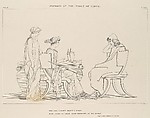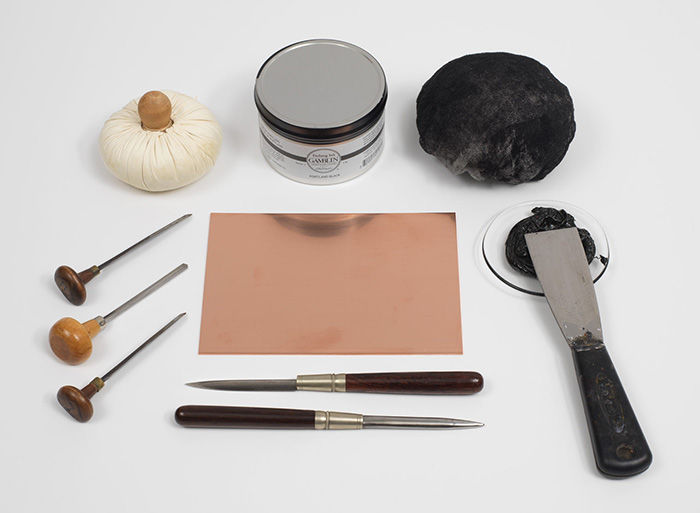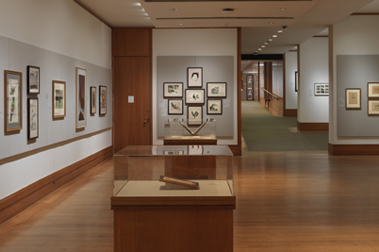Ulysses at the Table of Circe (The Odyssey of Homer)
Not on view
Flaxman, the finest British sculptor of the late eighteenth century, achieved international acclaim for his spare outline illustrations to Homer, Aeschylus and Dante. Before he arrived in Rome in 1787, Flaxman exhibited portraits and classical subjects in terracotta and plaster in London, and designed decorative reliefs for Josiah Wedgwood. During the seven years he spent in Italy, the sculptor developed a striking new style of outline drawing to illustrate Homer's Iliad and Odyssey for private patrons, and the images were then engraved and published in Italy, France and Britain. Contemporaries saw these images as strikingly primitive, echoing the style of Greek vase painting, and well suited to archaic poetic subjects. Flaxman preferred to represent figures in profile, based furniture and costume on ancient sources, and used open expanses of white paper to great psychological effect.
Here, Odysseus (or Ulysses) engages in a test of wills with the beautiful sorceress Circe, who tempts the hero to partake of enchanted food and drink, already used to turn his companions into swine. Lines of poetry below come from a 1726 translation of Homer's Odyssey by Alexander Pope:
Circe in vain invites the feast to share;
Absent I ponder, and absorb'd in care;
While scenes of woe rose anxious in my breast,
The queen beheld me, and these words address'd:
"'Why sits Ulysses silent and apart,
Some hoard of grief close harbour'd at his heart
Untouch'd before thee stand the cates [food] divine,
And unregarded laughs the rosy wine."
This image cannot be enlarged, viewed at full screen, or downloaded.


